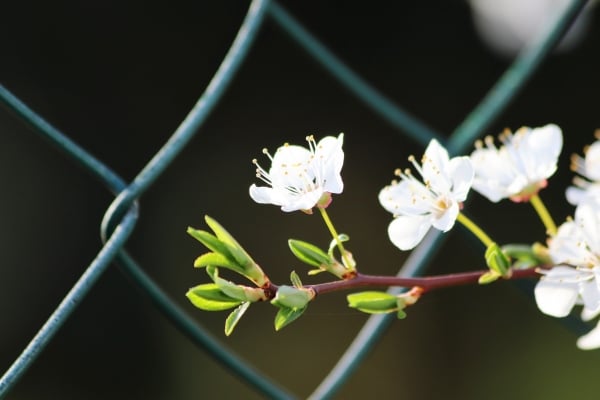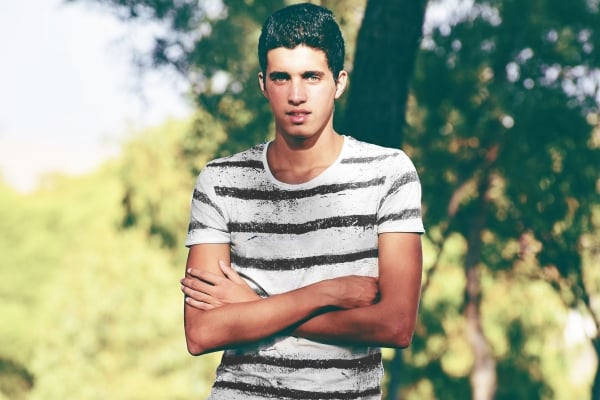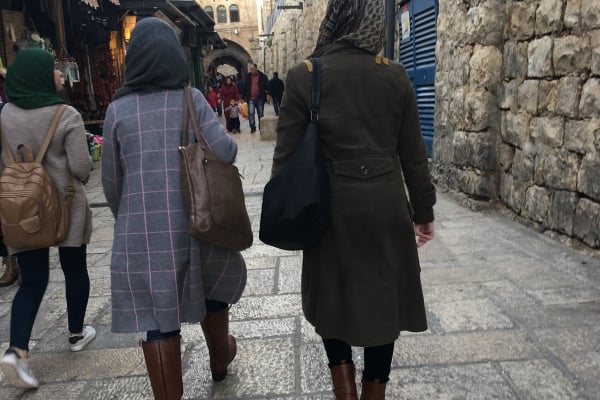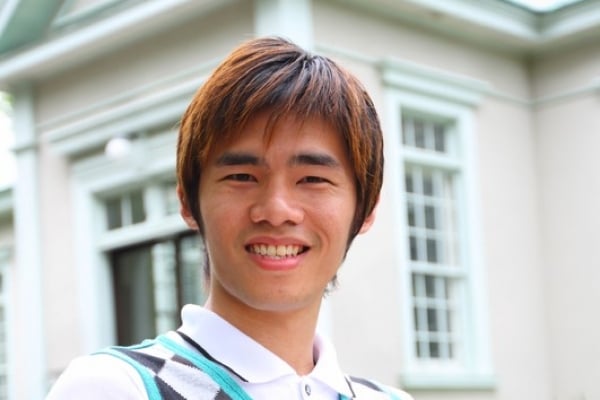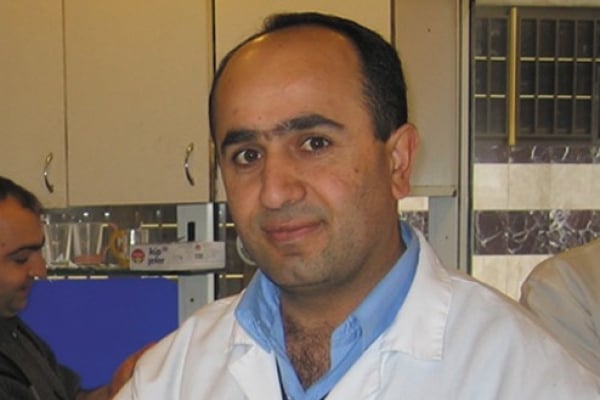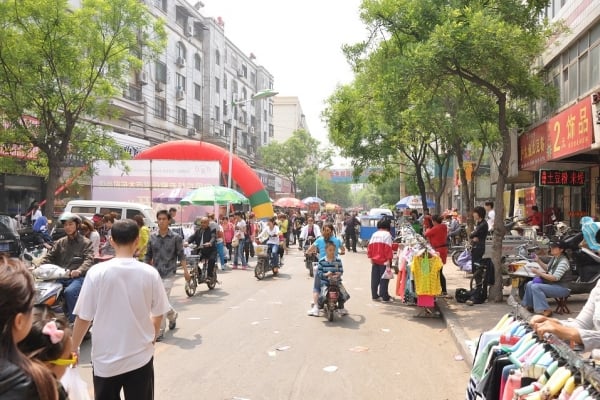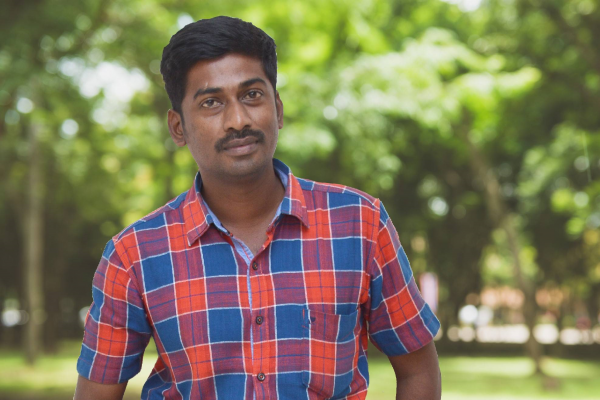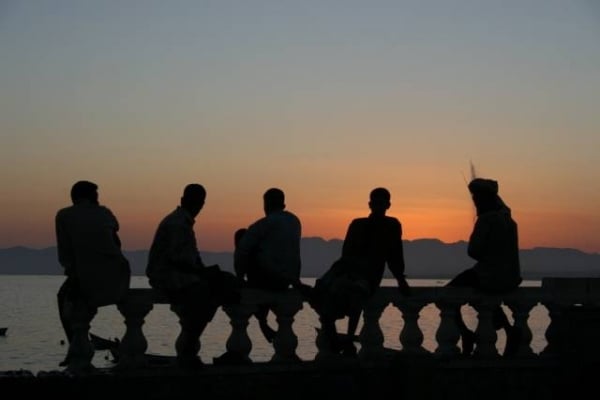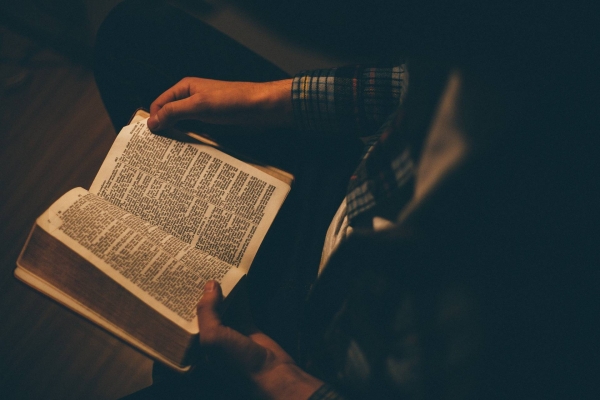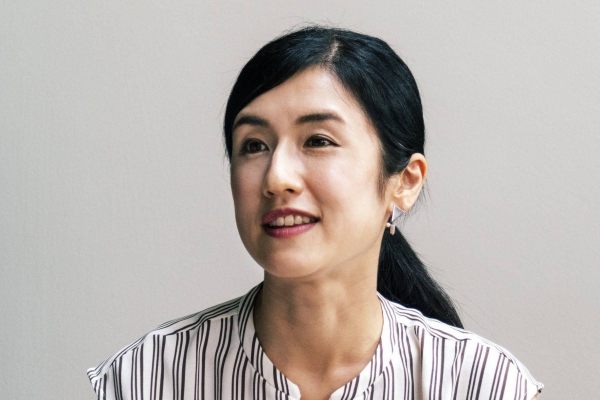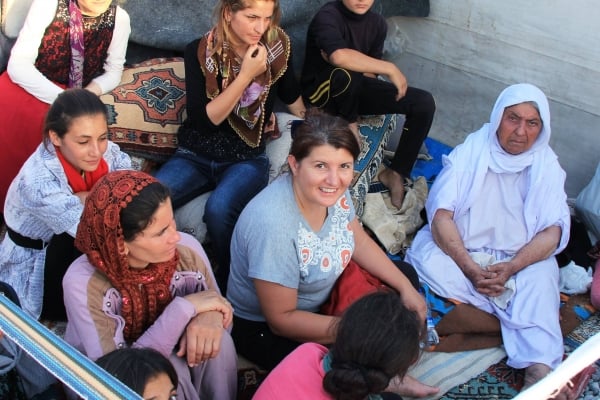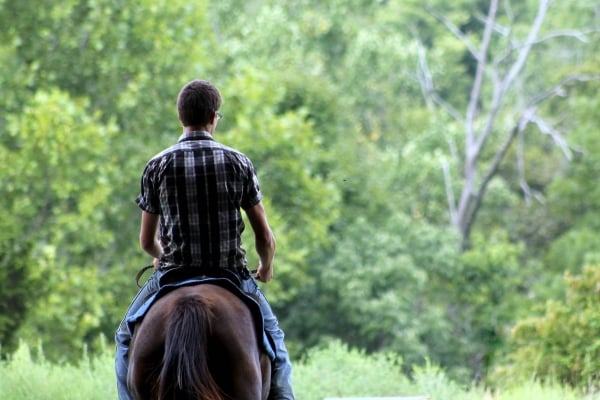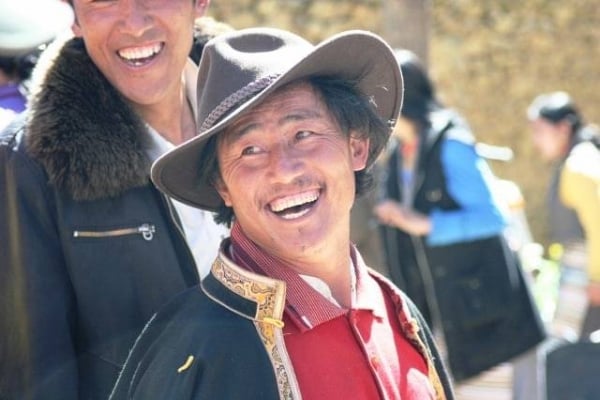
Keeping the Vision: A Journey of Ministry Among Kurds
“The Lord has a plan way more beautiful than any plan you could make up,” Natasha* testified. “And God doesn’t waste anything.”
After eight years of working toward her goal of serving full time in overseas, Natasha thought she would permanently live in the Middle East. But she’s not. She assumed she would never get married, and she wouldn’t have chosen to move to the Bible Belt—but she’s now a wife and mother living in the Southern United States.
Back in 2008, when she needed an internship in teaching English to complete her undergraduate degree, Natasha pursued an opportunity with Christar, hoping to serve in the same country in which a friend had served. Neil, then the mobilization coordinator for Christar, instead suggested that she consider working among the Kurds in the Middle East, and Natasha quickly agreed.
Going with a short-term team to a town with no known gospel presence appealed to Natasha, and she viewed her internship as a step toward long-term service. After they returned from the trip, the team leader approached Natasha, encouraging her to consider serving in the same city as part of a church-planting team.
Natasha skipped chapel at her university to pray about this opportunity, making a pros and cons list. On the cons side, she wrote that she would never get married, never see her sister or best friend have kids, be absent from her brother’s high school graduation and miss many holidays with her family. But as she thought about the pros, she remembered an opportunity during her internship to share the gospel with a Kurdish woman who had never heard it before. As Natasha reflected on this experience, she knew that the opportunity of telling even one Kurd about the good news of Jesus would make all the sacrifices worth it. “Bring it on, Lord!” Natasha wrote on her list.
It would take another seven years, however, before that dream became reality. The team leader and Natasha worked hard to recruit a full team to launch in the Middle East, and in the meantime, God enabled Natasha to see all of the things she thought she would miss!
Then, while raising funds for her ministry in her childhood hometown, she met a man named Peter through mutual friends. Cross-cultural work wasn’t on his radar, but suddenly Natasha was! For a year, he pursued her as she focused on pursuing ministry in Kurdistan. Eventually the two started dating, and Peter became open to the idea of working among Kurds.
In 2012, the two visited Kurdistan together with a short-term team. During that trip, Peter decided “These people need Jesus; I love Jesus; I love Natasha; this all makes sense.” A couple months later, when he proposed to Natasha, he told her that he would go to Kurdistan with her.
In early 2016, the big day finally came: Peter and Natasha moved to the field to begin the work there, joining Marcy and Amber, who had also started off as short-term workers.
Just a year later, however, a planned visit to the United States for a friend’s wedding in March of 2017 led to a mental health crisis. In 2015, Peter had begun showing signs of anxiety, as his fear of public speaking morphed into panic attacks during the couple’s final fundraising push before moving to the field. Although his symptoms had subsided when they reached Kurdistan, as Peter anticipated the thought of getting on the plane to return to the United States, he grew more and more afraid, and his world grew smaller and smaller—though he knew it wasn’t logical.
During the trip Peter suffered through a three-day panic attack, a terrifying time for the couple. They knew Peter needed help, and they hoped to find it in the three weeks they planned to be in the U.S.
But very quickly, they realized that the recovery from this struggle could take a lot longer.
With heavy hearts, they made the devastating decision to move from Kurdistan back to the United States for the foreseeable future. Natasha recalls her attitude at the time as, “Well, Lord, if You wanted to waste eight years of my life, I gave it to You from the beginning.”
She also thought of Abraham and the promise of many descendants, and how God called him to lay that promise down with the command to offer up his son Isaac to God. “I had a choice,” Natasha recalled, “A choice to submit to the Lord and my husband’s leading, or to be bitter. I chose to submit.”
At Peter’s self-sacrificial initiation, the couple looked for a place to settle in the United States that has a large Kurdish population. Six months after returning from Kurdistan, they moved from their family’s home area to a new state.
“I thought my dream of working with Kurds had died, but God gave the Kurds back to me, like He gave Isaac back to Abraham,” Natasha recalls.
Two weeks after Peter and Natasha arrived in their new city, a Kurdish believer started at Kurdish church plant! Before that, there had been no Kurdish church in this city, which has been home to a Kurdish community for decades.
Despite the new church plant, Natasha’s ministry is often an uphill effort. She works primarily on her own, rather than with a team as she originally envisioned. The people group among which she serves is quite conservative and takes Islam very seriously. “In their heads, [they almost believe that] to be Kurdish is to be Muslim,” Natasha explained. Additionally, woman—the focus of Natasha’s ministry due to cultural norms—are typically even harder to reach than the men. And, as Natasha shares, the high rate of illiteracy among this people group “keeps them in a very small world” because it’s hard for them to investigate things for themselves.
Even after people come to faith in Christ, church-planting among this group is a long and challenging process. Some new believers are terrified that their families will find out about their conversion and are wary of connecting with other Kurdish believers. In addition, Natasha shared, conflict between Kurdish believers can be a dealbreaker in many Kurds’ minds because they come from a believe system in which there is no forgiveness. “It’s hard the entire way,” she summarized.
But seeing how God is using her, especially having the joy of seeing a Kurdish friend accept the gospel, keeps Natasha going. “That makes everything worth it—all the hard things, and the teammates leaving.”
Amid the COVID-19 pandemic, Natasha’s ministry doesn’t have as many structured events. But she keeps large blocks of her schedule open to spend intentional time with Kurds, whether helping with a tangible need, hosting a baby shower or meeting with a woman to read the Bible together.
Natasha has clear evidence that God doesn’t waste anything—not her dream of working among Kurds, nor her years of language and cultural study. She has learned to lean into His faithfulness, and through all the ups and downs, she continues to trust in the Lord’s plan and providential leading.
Participate by Praying:
- Pray that Kurdish believers in the United States will mature and that the church plant in Natasha’s city would grow.
- Ask God to continue encouraging Natasha and other workers among the Kurds by showing them how their work is having an impact.
- Pray that the Lord will move in the hearts of believers in Natasha’s community to serve alongside her.

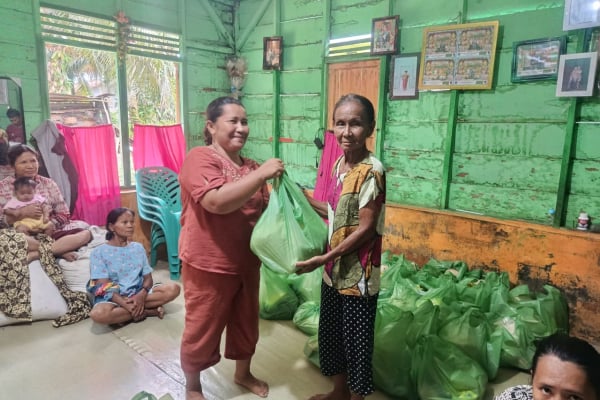

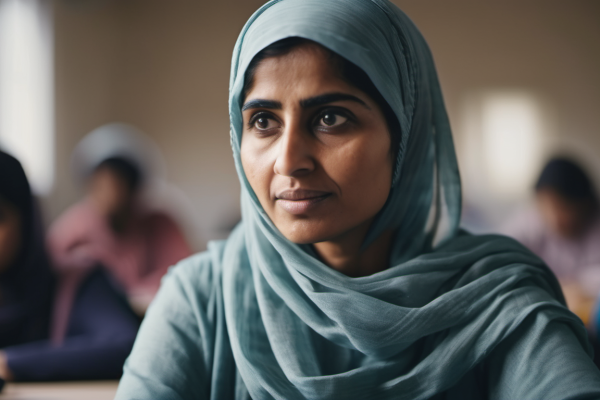
_1624034103_600x400.jpg)
